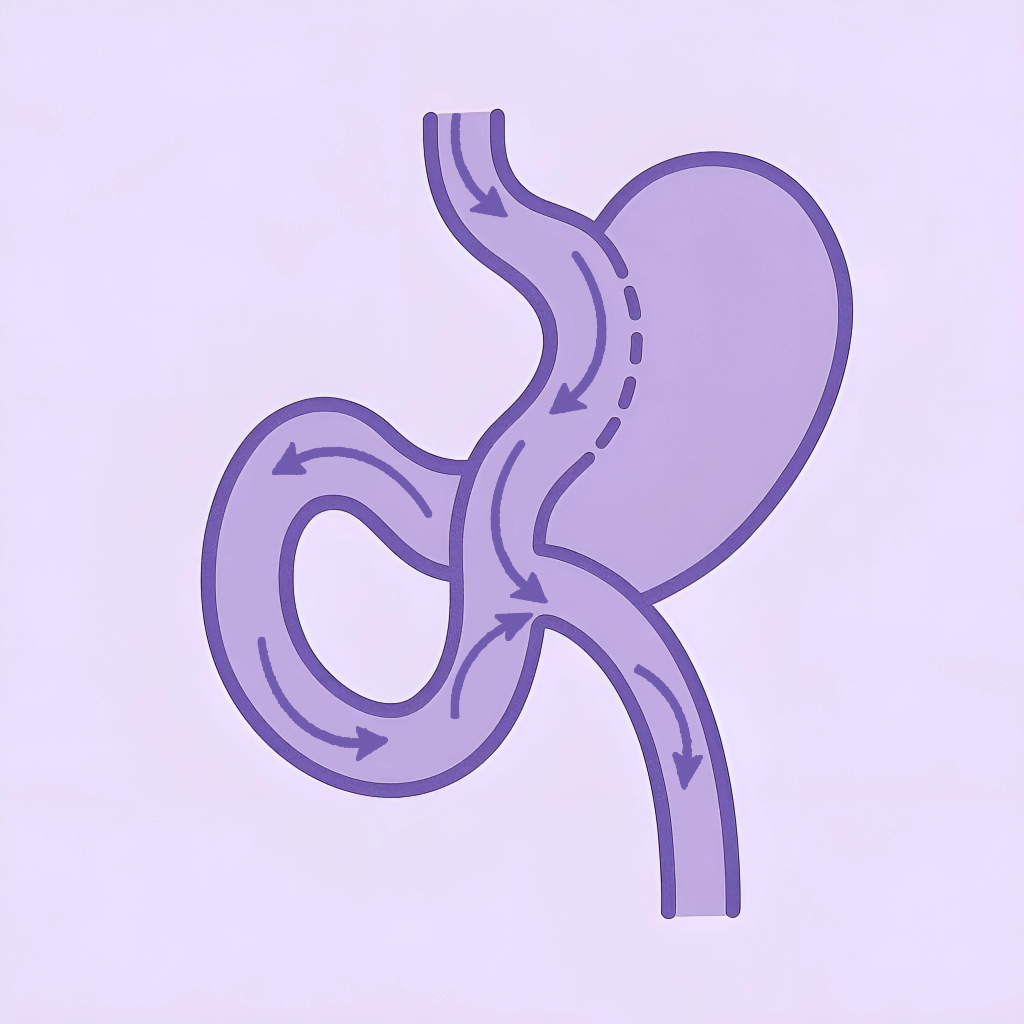Sleeve Gastrectomy







Sleeve Gastrectomy
Overview
Sleeve gastrectomy is a minimally invasive weight-loss surgery that removes approximately 80% of the stomach, leaving behind a smaller, tube-shaped organ. This reduction limits food intake and reduces hunger by lowering levels of ghrelin, the hormone responsible for stimulating appetite.

Unlike Gastric Bypass, Sleeve Gastrectomy does not alter the intestines, making it a simpler procedure with fewer long-term complications. Patients typically experience significant weight loss and improved overall health when combined with lifestyle changes.
Who is it for?
Sleeve Gastrectomy is ideal for individuals struggling with severe obesity who have difficulty losing weight through diet and exercise. It’s recommended for those with a high BMI or weight-related health conditions.
Candidates typically have a BMI of 40 or higher or a BMI of 35 to 39.9 with serious weight-related health issues like diabetes, high blood pressure, or sleep apnea. In some cases, individuals with a BMI of 30 to 34 may qualify if they have significant health problems.

Procedure Details
During Sleeve Gastrectomy, precise laparoscopic incisions are performed to remove approximately 80% of the stomach. The remaining stomach is carefully shaped and stapled to ensuring minimal complications.
- Five small incisions (1-3 cm) are made in the abdominal wall to insert surgical instruments and a camera.
- The stomach is inspected, and blood vessels on its lateral side are divided.
- A Bougie tube is inserted to guide the new stomach size.
- A stapler is used to divide the stomach, leaving a banana-shaped stomach with 20-25% of its original volume.
- The procedure is tested for leaks and incisions are closed.
Have questions about your treatment?
Our team is available 24/7 with multilingual support.

Recovery and Aftercare
Sleeve Gastrectomy takes 40-70 minutes, with most patients discharged after 2-3 nights. Walking begins within 4-6 hours, and pain is usually mild. Patients start with a liquid diet for two weeks, transition to soft foods, and introduce regular meals after four weeks. Most return to work or school within 2-4 weeks and can start exercising after four weeks.
Long-term success depends on balanced nutrition, regular exercise, and follow-up care. Patients must take multivitamins and B-complex supplements to maintain health. Ongoing support is available to help sustain weight loss and overall well-being.
Results Timeline
Most patients notice significant weight loss within the first few months, with the most rapid changes occurring in the first six. By one year, many achieve 60-70% of their excess weight loss, and most reach their lowest weight 12-24 months after surgery. The success rate of Gastric Sleeve surgery is approximately 80-90%.
- First 2 weeks: 10-20 pounds; most patients lose about one pound per day.
- First 3 months: 35-45% of excess weight lost.
- First 6 months: 50-60% of excess weight lost.
- First year: 60-70% of excess weight lost.
Since sleeve gastrectomy is a restrictive procedure, it does not reduce calorie absorption. Consuming high-calorie foods can slow weight loss or even lead to weight gain. No surgery guarantees success without the patient’s full commitment and participation—long-term results depend on maintaining healthy eating habits and lifestyle changes.
Frequently Asked Questions
Find answers to common inquiries.
Need personalized support?
WhatsApp us for a quick response—we reply within minutes.
What types of surgeries does Dr. Gül specialize in?
Why choose Türkiye for surgical procedures?
What is the recovery time for most surgeries?
What bariatric procedures are offered at the clinic?
How much weight can I expect to lose after bariatric surgery?
What languages does Dr. Gül and his team speak?
Will I need to take supplements after bariatric surgery?
Does insurance cover these procedures?
Can I combine treatment with travel in Turkey?
What support is available after surgery?
Our Expertise

Sleeve Gastrectomy
Minimally invasive surgery for long-term weight loss with a simple procedure and no rerouting.

Mini Gastric Bypass
Simpler, less invasive gastric bypass for significant weight loss and diabetes control.

Gastric Balloon
A non-surgical, temporary option for moderate weight loss without permanent stomach changes.
Follow Dr. Gül on Instagram








